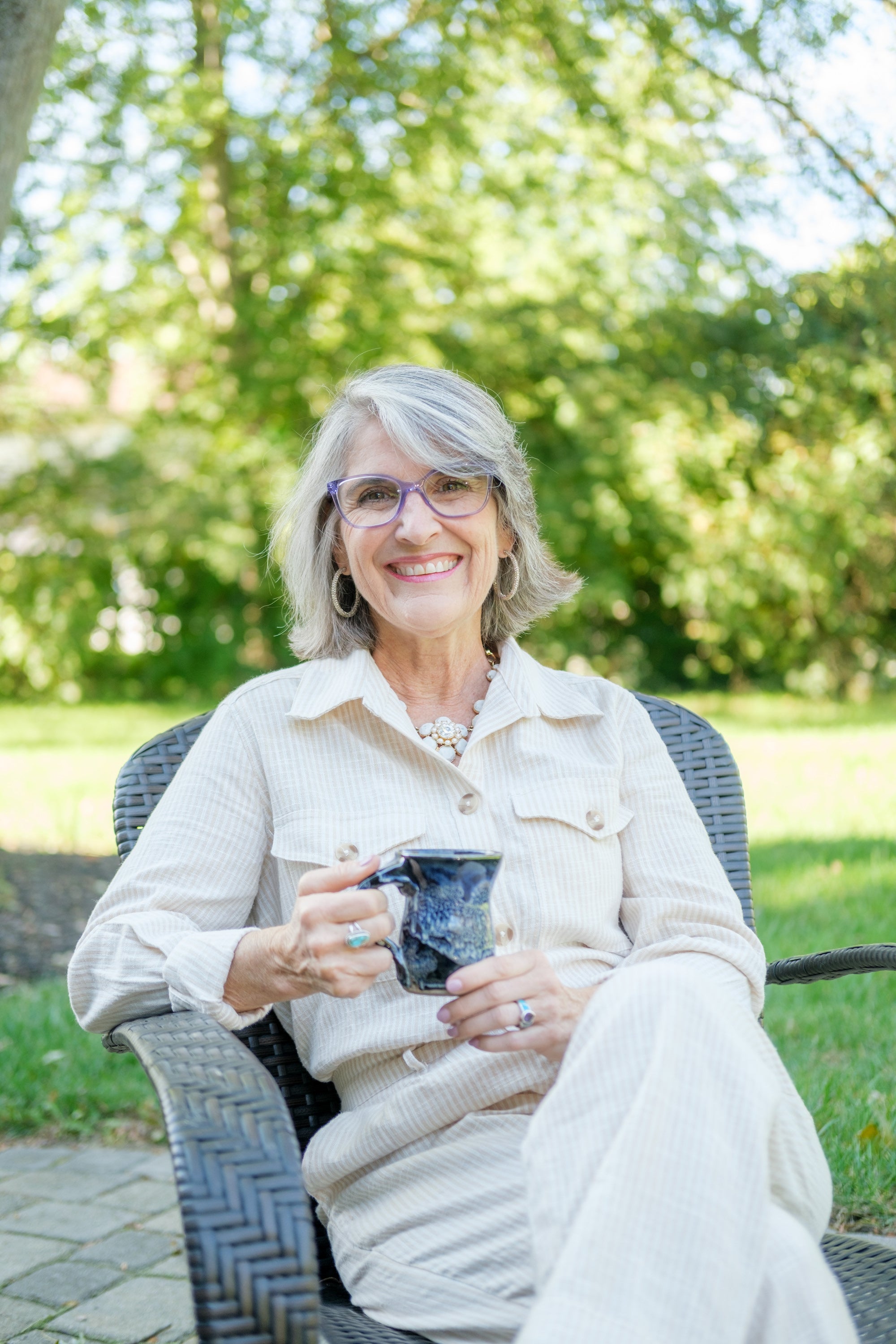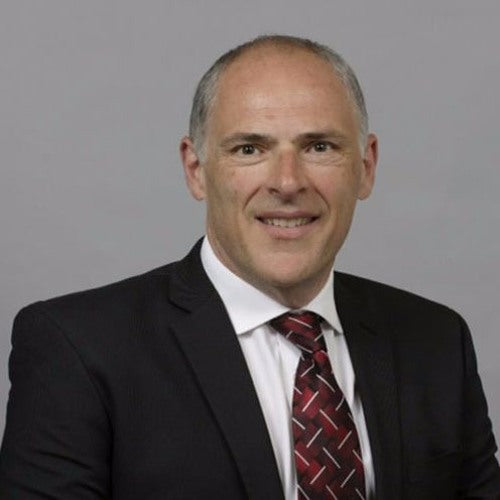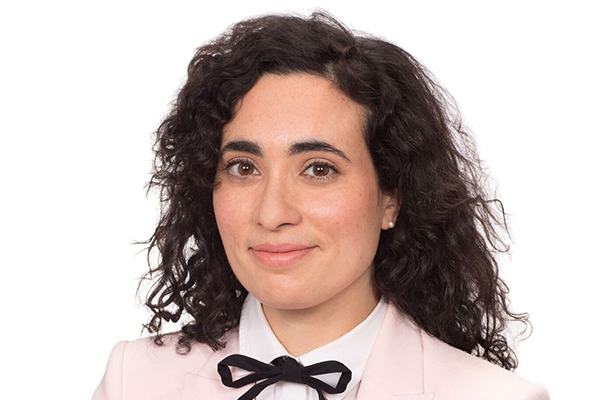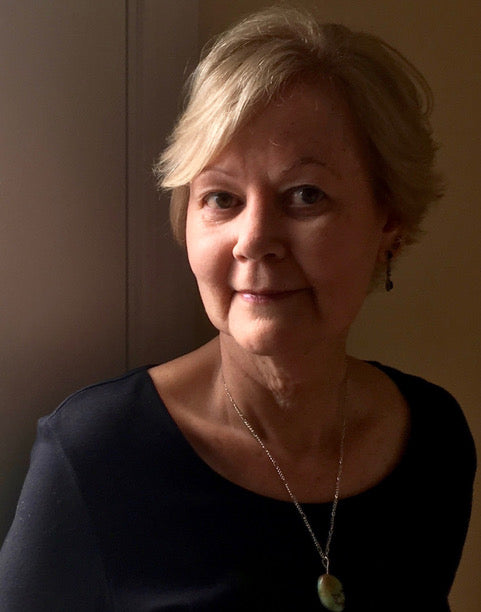
(Photo by Jake Chessum)
Author: Ann Napolitano
Author Bio:
"Ann Napolitano’s new novel, Dear Edward, was published by Dial Press in January 2020 and was an instant New York Times bestseller. She is the author of the novels A Good Hard Look and Within Arm’s Reach. She was the Associate Editor of One Story literary magazine from 2014-2020. She received an MFA from New York University; she has taught fiction writing for Brooklyn College’s MFA program, New York University’s School of Continuing and Professional Studies and for Gotham Writers’ Workshop. In November 2019, Ann was long-listed for the Simpson/Joyce Carol Oates Literary Prize.
Dear Edward has been published by Dial Press in the United States, and by Viking Penguin in the United Kingdom. The novel currently has twenty-six international publishers. It was named one of the best books of 2020 by The Washington Post, The Boston Globe, Real Simple, Fast Company, Women’s World, Parade, LibraryReads and Amazon.
A Good Hard Look was published in the United States by Penguin Press. The novel appeared on the Southern Independent bestseller list, on one of NPR’s Best of 2011 lists, and was also an Indie Next Pick and an Okra Pick.
Her first novel, Within Arm’s Reach, was published in the United States by Crown Publishing, in the United Kingdom by Time Warner Books/Virago, in Spain by Ediciones Salamandra, and in Germany by Verlagsgruppe Droemer Weltbild. The novel was adapted and staged as a theatrical production in New York City in 2014.
Ann lives in Brooklyn with her husband and two children."
1. It has been said that your critically acclaimed novel, “Dear Edward” is “a good reminder that we should all do what we can when we can - we are never guaranteed a future.” How important was it for you to highlight this actuality of life?
I didn’t intentionally set out to highlight that, but I am fascinated by the fact that we make numerous small decisions every day, and one of them could—out of nowhere--change everything.
You cross the street and get hit by a bus, you take one flight and the flight that takes off three minutes later crashes, you go to sleep healthy and wake up with a life-threatening illness. Life is short and uncertain, which is part of why it’s precious. If there is an over-arching theme to my work so far, it’s about what it means to live a well-lived life.
2. What is one piece of advice you would give someone that is currently going through a loss of a loved one?
I’m not a psychologist, or expert in any way, but my advice after walking beside Edward for so long, is to know that the loss is not necessarily something to “get over”. Loss and grief change you, and deepen you. They become part of who you are.
I think people aren’t served by being told to heal from a loss, or recover from it. In reality, those terms aren’t part of the true experience of losing someone you love with all your heart. It also subtracts some of the beauty, and humanity, from the experience. We are shaped by who we love, and how well we love, and that love is our grief, after loss.
3. Eddie Adler, the protagonist, has to grapple with understanding his life’s purpose at an early age. As the writer of this novel, have you found your life’s purpose?
That’s an interesting question. I feel like it’s my responsibility to know myself, to know what scares and invigorates me, and do more of what invigorates me. If we imagine that we’re each made up of one hundred light bulbs, then by the end of my life, I hope I’ve figured out what turns each one of my bulbs on.
If we were all lit up by love and engagement more of the time, the world would be a better place. Writing uses all of me--all my potential, all my brain, and all my attention--and I honor that through writing. I feel similarly about parenting—raising hopefully good humans requires my attention, my love and my humor. I’ve known since I was quite young that I wanted to be a writer and a mother, and I feel deeply grateful that those two endeavors shape my adult life.
4. Many readers have shared stories of them being moved to tears while reading “Dear Edward”. Did you at any point shed a tear while writing?
I didn’t cry, but I often felt moved. I felt grateful to write from a place of deep emotion. So much of writing Dear Edward involved listening to each sentence with a tiny emotional tuning fork, asking: is this true?
5. If there is one emotion that could sum up “Dear Edward” what would it be?
Love.
6. “Some people live in the now; other people prefer to reside in the past – either choice is valid.” As the author, do you agree with this statement?
Well, from a stance of not judging other people (unless their behavior harms themselves or others)—yes. I try to live in the now, but perhaps at the end of my life I’ll prefer to subside in my memories. There are many moments for us to swim in; now is just one of them.
7. How important was it for you to also include the backstories of the other passengers aboard Edward’s plane?
Very important. I wanted the two narratives to sit side-by-side, from my first conception of the novel. It was pure chance that those passengers died, and Edward lived. All of their lives are equally significant and valuable, and I wanted to show that through exploring all of their stories.
8. You have stated that “Dear Edward” took nearly eight years to write. What motivated you to keep writing and did your passion for this project ever wane?
I loved writing this book, and living in this world. I actually wrote the novel for a year longer than I should have, before giving it to my agent, because I didn’t want the process to be done. Of course there were periods during the long process when I doubted my ability to pull the story off, and wondered if the book would ever be published, if I did finish it.
Part of the challenge of writing a novel is that you’ve taken on a challenge that perhaps is impossible when you begin, and you have to figure out how to grow your ability and skills along with the story. That’s hard, obviously, and self-doubt is inevitable.
9. Why do you think this book resonated with so many people?
Everyone goes through hard times—the loss of a parent, a divorce, an illness--in which they don’t know how they’re going to be whole and okay on the other side. I think we can all relate to and root for Edward, because if he can be whole on the other side of his own catastrophic loss, then there’s hope, and a path, for all of us.
10. What’s your best advice for getting over writer’s block?
I think I stole this from Ann Patchett, but when I’m full of despair about a project, or stuck in some way, or very busy in other parts of my life, I make a rule that I have to write for five minutes a day. When I’ve written for five minutes, I put an ‘x’ on my calendar and my job is to string together as many ‘x’s’ in a row as possible. This tactic gets me through the hard spots.
11. What’s the best book you have read this year so far?
Deacon King Kong by James McBride. I LOVED it.
12. What’s the best advice you have ever received on happiness?
I think it’s the idea that happiness is not the goal of a well-lived life, though it is often a by-product. I’d rather be good, and kind, and engaged in my life and work, than happy. Those actions often make me feel happy, thankfully, but that’s not the goal.
Places To Find More From This Author:
Instagram: @annnapolitano
Twitter: @napolitanoann
Website: annnapolitano.com








1 comment
Excellent interview; questions were insightful, well thought out and provoked phenomenally heartfelt, sincere responses. I loved Ann Napolitano’s ism on life, 100 light bulbs. I can not wait to buy the book Dear Edward